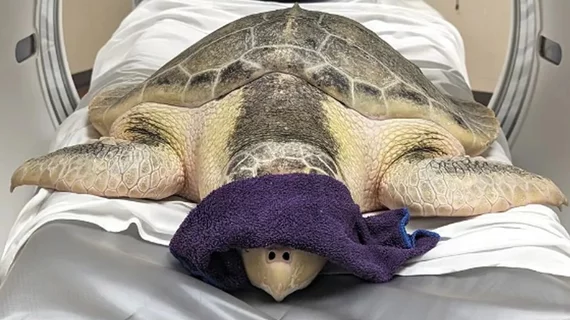Rare sea turtle with infected shell undergoes CT scan
A Kemp’s ridley sea turtle residing at the Cook Museum of Natural Science in Decatur, Alabama, underwent his second CT scan to assess the status of osteomyelitis, a bone infection afflicting his shell. The CT scan, conducted by the museum's veterinarian, also adds to the body of knowledge about the rare species, classified as critically endangered.
The turtle, named Kale, was rescued from a hook injury in 2019, resulting in multiple surgeries, rendering him non-releasable. Since arriving at the Cook Museum in 2020, Kale has received extensive care dedicated to his recovery. Despite being non-releasable, the museum said he serves as an ambassador for his species, contributing to public education and amusing visitors.
Kale’s experience in the wild provides valuable scientific insights into the challenges faced by Kemp's ridley sea turtles, which are rarely seen by researchers, despite the species spanning most of the Atlantic ocean.
For more details—including more photos of Kale—read the full story from AL.com below.

